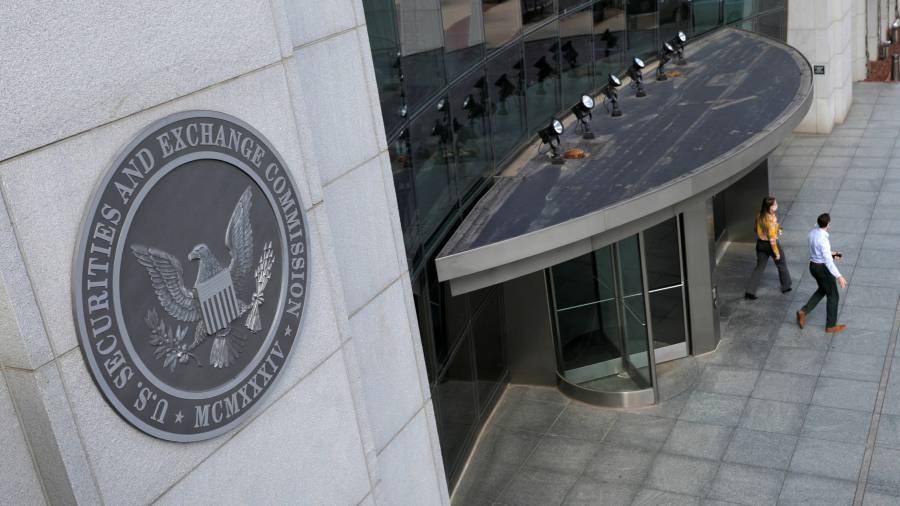
The US Supreme Court on Monday will hear arguments that could make enforcement more complicated for federal agencies, potentially frustrating regulators seeking to crack down on wrongdoing under the Biden administration.
The cases involving the Federal Trade Commission, a top US antitrust and consumer watchdog, and the Securities and Exchange Commission, Wall Street’s top regulator, hit at the core of a fraught debate on the boundaries of regulatory authority.
The petitioners argue that the agencies’ internal enforcement procedures and their administrative law judges — who are appointed by the regulators and conduct in-house adjudications — are unconstitutional because the former often cannot be challenged until after their conclusion and the latter are difficult to remove.
A loss for the regulators could overturn a mechanism that has been a mainstay of regulatory enforcement for decades. It would make it more difficult for agencies to implement the law at a time when Biden-appointed officials are taking a tougher stance against illicit conduct.
If the Supreme Court rules against the regulators, the SEC and FTC would still have enforcement authority, but these actions would probably be deployed in federal courts.
Litigating more cases in court would require more resources and add “uncertainty” over potential delays in the judicial system, said Joshua Macey, assistant professor at the University of Chicago Law School. “People against whom they might bring an enforcement action have the ability to cause delays in this way.”
The agencies argue the petitioners should not be able to “short-circuit” internal enforcement mechanisms created by Congress “by preemptively suing in district court” to halt regulatory action.
Macey said the conservative shift on the Supreme Court meant the constitutional arguments made by the petitioners would receive a more receptive hearing that they would have done previously.
Split 6-3 between conservative and liberal justices, the court “has expressed a willingness to revisit a lot of constitutional law involving agencies and a deep level of scepticism,” he said.
The Supreme Court dealt a blow to US environmental regulators last term by curbing the ability of the Environmental Protection Agency to limit greenhouse gas emissions from power plants in a landmark decision that raised questions about how far this bench is willing to constrain agencies’ power.
The cases going before the court Monday stem from two enforcement proceedings that were challenged by the alleged wrongdoers. In the first, the FTC accused law enforcement supplier Axon Enterprise of an allegedly anti-competitive acquisition in the body-worn cameras market. In the second, the SEC claimed Michelle Cochran, an accountant in Texas, committed wrongdoing related to her audit work.
Axon and Cochran filed lawsuits in federal court arguing the agencies’ in-house processes were unconstitutional.
The US Chamber of Commerce filed a brief in favour of Axon, arguing that it was difficult to dispute in-house adjudications because such challenges often arose after the proceedings ended. “Few parties are willing or able to shoulder the burden” of challenging FTC internal proceedings “in the hopes . . .[they] will eventually see the light of a courthouse years later,” the Chamber said.
This often “forecloses judicial review altogether,” it added.
The American Antitrust Institute in a brief supporting the FTC said: “This case may well be a preview of the boundary-testing to come”.
The delay caused by challenging enforcement actions early means that even if companies are unsuccessful in court, they could still “win for losing”, it added.